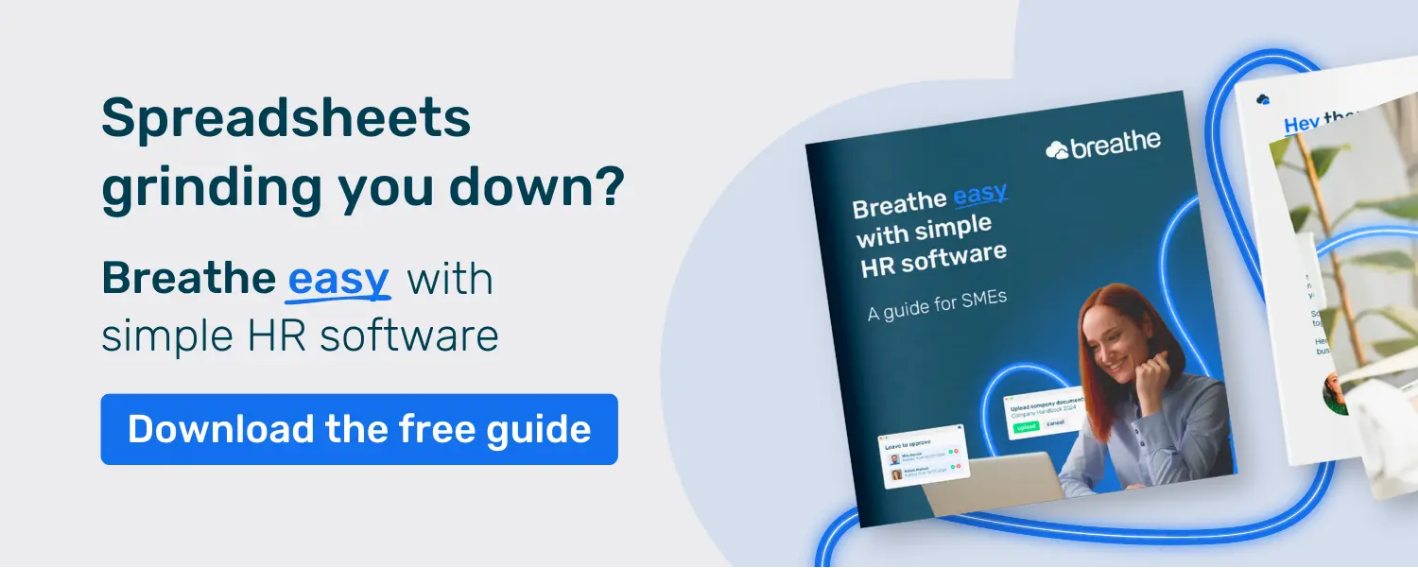Your people are your greatest resource. Treating your employees fairly and providing them with opportunities to grow will help you achieve your ideas and hit your business goals. This is something that HR is well-placed to help with.
What exactly is human resources?
Human resources (HR) is the umbrella term used to describe the management and development of employees in an organisation. Ultimately, it’s all about increasing employee performance.
Traditionally, HR focused on hiring, firing and the old-school annual pay review. But more recently HR has been positively reframed and now covers a much wider remit.
Basic functions of HR include:
-
Employment law compliance
-
Safety compliance
More than this, HR plays a significant role in developing positive business culture and improving employee engagement and productivity. The HR function also takes the lead on employee wellness and personal development.

Why is human resources (HR) so important?
It can be easy to overlook HR in an SME. Many entrepreneurs get their businesses off to a flying start, but grapple with people management as the business starts to flourish.
Managing staff takes time and it requires specific skills. HR is an area of expertise many business owners lack.
Regardless of skills, the value of HR in business isn’t always immediately apparent. With just a few employees, business leaders feel like they have their finger on the pulse when it comes to the people they hire and manage.
But as a business grows, leaders often find there just isn’t time to deal with day-to-day people management and recruitment and the focus on people can easily get lost. This is a costly mistake and can affect employee satisfaction, culture and long-term success.Consider the consequences of poor HR. When employees don’t feel supported, aren’t being given opportunities, work long hours, and so on, their motivation to perform is impacted.
Underdeliver on effective HR and you’ll see a knock-on effect on your bottom line. People, culture and business success go hand-in-hand. Reputation as an employer is influential in attracting talent. It also impacts on customers.
Take Uber as an example; plagued by a string of HR catastrophes from sexual harassment cases to ignoring employee complaints, the resulting bad publicity has undoubtedly deterred many from working there or from using their ride-sharing services. Bad HR has destroyed Uber’s employer brand.
Human resources in business - what are the main functions?
Recruitment and onboarding
Finding the right people to work in your business can be difficult. The recruitment process can take months and getting it wrong can be costly. Finding a good fit when it comes to recruiting talent is one of the most important aspects of HR. Hire too many people, too few or recruit an inappropriate candidate and your business will suffer.
The importance of onboarding is perhaps the most underestimated part of the recruitment process.
Not to be confused with orientation, onboarding refers to the whole experience of hiring, welcoming, orienting and engaging a new recruit and helping them adapt to your organisation’s culture.
Good onboarding maximises employee engagement and increases retention. In contrast, poor onboarding can have a hugely negative impact and leave talented new employees disengaged from the word go.
Want extra guidance? Download our Induction Process Guide here.
Performance management and training
Performance management, training and development are a big part of HR. Almost all employees have skills gaps. Performance management helps address those issues.
An effective performance management system enables managers to offer support to employees who need it and identify future superstars.
It’s widely recognised that employee development contributes towards better employee engagement, increased productivity, reduced employee turnover and a more positive culture.
Comprehensive training and personal development help strengthen any weak links in the company (including managers). Investing in your employees strengthens your organisation and gives your business a competitive edge.
Building and maintaining company culture
Positive business culture is no longer a nice-to-have. It drives employee engagement, job satisfaction and staff retention, and it defines business success. HR plays a key role in developing, reinforcing and changing the culture of an organisation.
Pay, performance management, training and development, recruitment and onboarding and reinforcing the values of the business are all essential elements of business culture covered by HR.
Getting culture right isn’t easy.
It requires a multi-pronged approach and needs consistent nurturing (read more about workplace culture in The Culture Economy Report). Essentially, HR plays a significant role in setting the right tone when it comes to company culture.
Business communications
Businesses require effective communication to operate well. And so often, the way communication occurs in a business is defined by HR.
Good communication mitigates misunderstandings, increases employee engagement, forms the basis for better client relationships, encourages innovation and creativity and helps build a positive culture.
Legal and regulatory compliance
HR professionals have a full understanding of employment law and the regulatory requirements of a business associated with staff. This enormous area shouldn’t be underestimated; an unfair dismissal claim can be an expensive mistake.
Ease the admin burden on HR teams with software
Employing a dedicated HR professional isn’t a luxury for SMEs, it’s essential. It’s common for entrepreneurs to start out their business wearing the HR hat but looking after HR and the complexities of employment law isn’t effective time management, and it’s costly for the business when something goes wrong.
Outsourcing your HR needs or hiring a part-time HR manager, lets business leaders concentrate on growing their business. Having someone to look after employee-related matters, from absence management through to parental leave policies and beyond, will keep your business compliant and your employees more engaged.
Find out how HR software like Breathe can streamline your HR admin with a 14-day free trial.

Author: Laura Sands
Laura is a writer who enjoys getting into the detail of subjects and sharing that knowledge with snappy, interesting content. When not typing away, she enjoys walks in the woods and curling up with a good book and mug of something hot.






